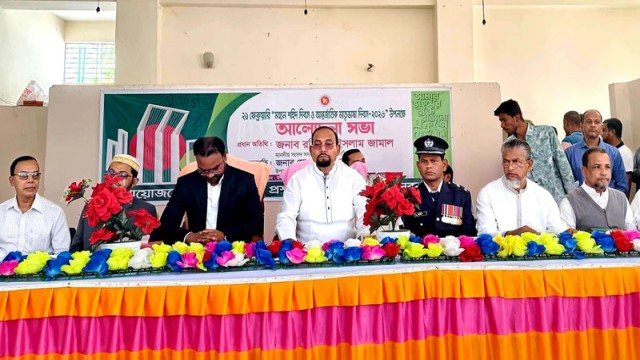Barguna, Oct 16 (V7N) – The once-thriving bamboo industry, deeply rooted in rural townships, is gradually losing its prominence due to the increasing cost of bamboo and the rising dominance of plastic products. Bamboo products, traditionally used for household and agricultural purposes, are becoming scarce, and those who depend on this industry are facing financial struggles.
For centuries, bamboo products like kula (winnowing baskets), chalan (sieves), baskets, and rice storage containers were essential in homes and for special occasions such as weddings or farming activities. However, modern plastic alternatives have replaced these once-common items, driving the bamboo industry towards extinction.
In Saha Patti , a well-known area in Barguna city, bamboo products have been bought and sold for hundreds of years. Market days used to be busy, with merchants like Md. Altaf Hossain from Sonakhali village recalling how he sold bamboo products from morning till night for the past sixty years. But now, the number of buyers has dwindled, with only a few people coming to purchase bamboo goods. "People now prefer plastic products, which are cheaper and more durable," said Altaf Hossain.
Suresh Mandal , another long-time seller from Kalibari in Patharghata Upazila, echoed similar sentiments. He has been selling bamboo products like sazi , baskets, and dala for fifty years but now struggles to make a living. "There is no longer a demand for these products, and at my age, it is difficult to switch to another profession. I will continue as long as I can," said Suresh.
The situation is particularly dire during what used to be peak selling seasons, such as the rice harvest, when bamboo products like paddy chalan were in high demand. Now, even during the harvest, the demand is nowhere near what it used to be.
Shahjahan Mia, a resident of Mansatli village, came to the Barguna market to buy a paddy chalan, noting that such items are no longer available in local village markets. "I had to come to Barguna because they’re hard to find," he explained.
Alamgir , a lessee of the Shiperkhal village market, observed the sharp decline in business over the past thirty years. "Earlier, if I invested Tk 500,000, I would easily make Tk 200,000 in profit. Now, even with Tk 200,000 invested, the business barely brings in Tk 30,000," he said. The rise of modern soil-cutting machines like the veku has also hurt the market for bamboo tools traditionally used for digging.
The shrinking market and rising production costs have pushed many artisans into financial difficulty, with fears that the bamboo industry could disappear in the near future. Without significant demand or support, this ancient craft that once supported entire communities is at risk of fading into history.
END/MR/AJ






























Comment: